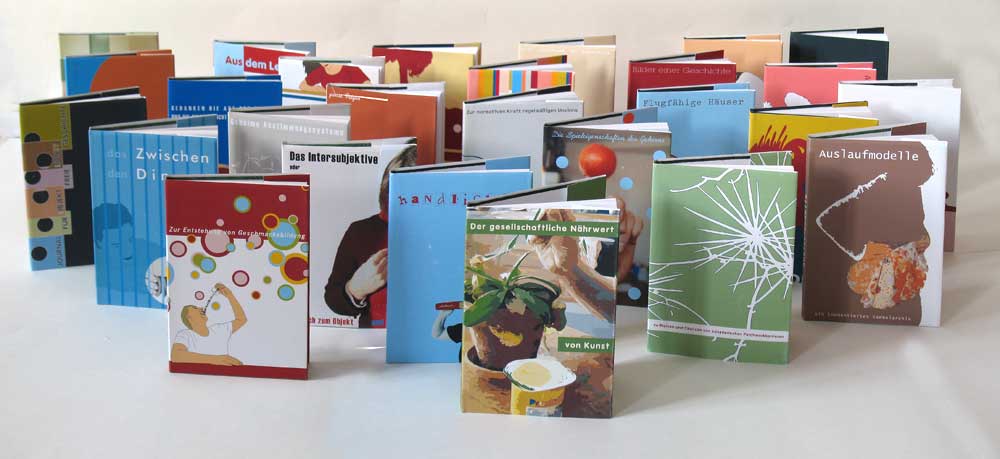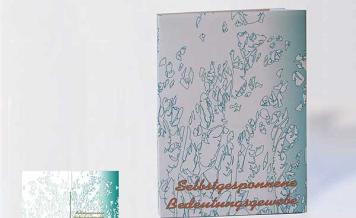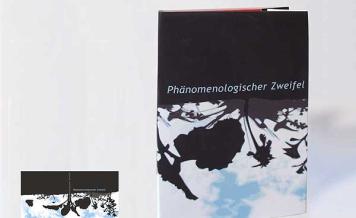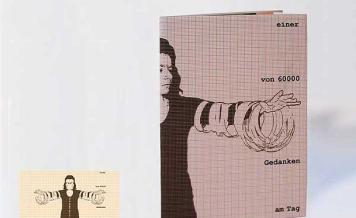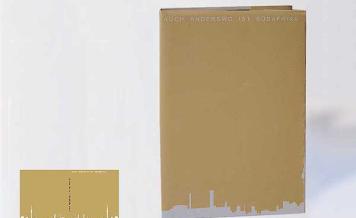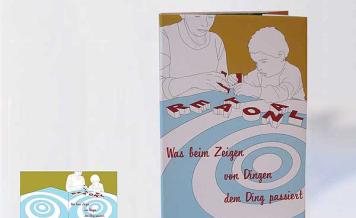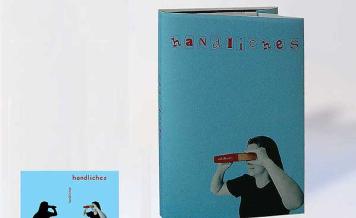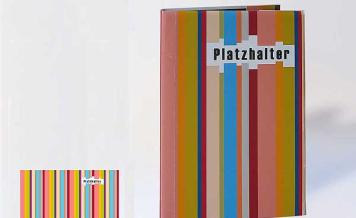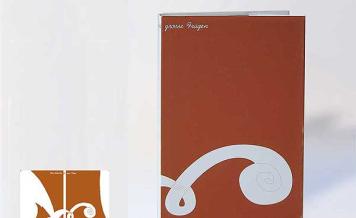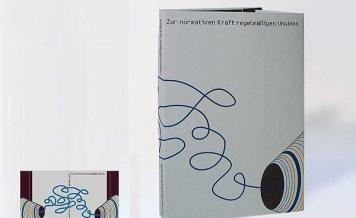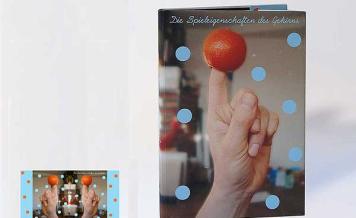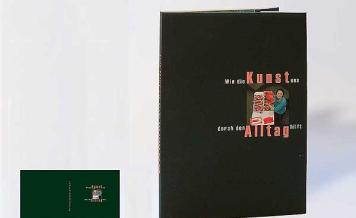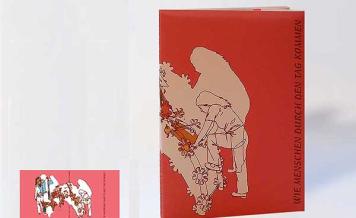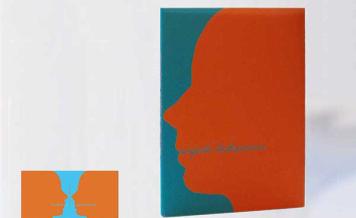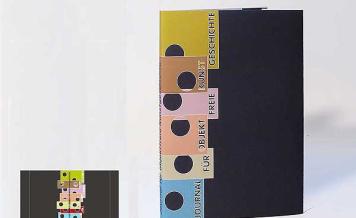BUCHCOVER
Die Bibliothek der »Bücher, die noch geschrieben werden sollten« ist eine imaginäre Bibliothek und ist es doch auch wieder nicht. Als physische Objekte existieren die Bücher wirklich und wollen angefasst und durchblättert werden. Imaginär ist sie jedoch in dem Sinne, dass sie suggeriert, auf eine größere Öffentlichkeit abzuzielen, der sie aber tatsächlich verborgen bleiben muss: Zwar existieren die 20 »Bücher, die noch geschrieben werden sollten« in einer Mehrfachauflage von jeweils fünf Stück, dennoch sind sie einer potentiellen Leserschaft nur temporär zugänglich: Nach Ende der Ausstellung werden sie wieder aus ihrem Bestand verschwinden; übrig bleibt eine Erinnerung an eine flüchtige Erscheinung.
Imaginär ist auch der Inhalt der Bücher — es sind Blindbände. Was mögen sie in einem potentiellen Leser auslösen? Enttäuschung, Des-Illusion? Oder, ganz im Gegenteil, Inspiration? Wir leben in einer Optionengesellschaft, die eigentlich keine ist, weil sie den Genuss des bloß Möglichen nicht zulässt. Anstelle des Freiheitsversprechens, das Bücher eigentlich enthalten, tritt nicht selten der Imperativ eines must-be-read. Da mag die Existenz von Büchern, die (noch) nicht geschrieben sind, Erleichterung verschaffen. Die Seiten der »Bücher, die noch geschrieben werden sollten«, sind buchstäblich noch frei — allerdings nicht vollkommen. Ihr Möglichkeitsraum ist nicht unbegrenzt, nicht vollkommen beliebig. Buchtitel wie etwa »Wohin das Betrachten von Kunst führt« oder »Die Intelligenz der Hände« weisen potentiellen Gedankengängen eine Richtung und schränken sie dadurch ein — allerdings sind es Einschränkungen dieser Art, die Denken überhaupt erst möglich machen. Die Titel machen die halbimaginären Bücher zugleich zum persönlichen Porträt ihrer Erschafferin.
In ihrer Gesamtheit bilden sie ein Profil ihrer Interessenschwerpunkte; eine Art Portrait, wie es von jedem - lesenden - Menschen entworfen werden könnte.
BOOK COVER
The library of "books that should still be written" is an imaginary library and yet it is not. As physical objects, the books really exist and want to be touched and leafed through. However, it is imaginary in the sense that it suggests aiming at a larger public, to which it must in fact remain hidden: Although the 20 "books that were yet to be written" exist in a multiple edition of five each, they are nevertheless only temporarily accessible to a potential readership: after the end of the exhibition, they will disappear again from its inventory; what remains is a memory of a fleeting appearance.
The content of the books is also imaginary - they are blind volumes. What might they trigger in a potential reader? Disappointment, dis-illusionment? Or, on the contrary, inspiration? We live in an option society that is not really an option society, because it does not allow the enjoyment of the merely possible. Instead of the promise of freedom that books actually contain, the imperative of a must-be-read often takes its place. The existence of books that have not (yet) been written may provide relief. The pages of "books yet to be written" are literally still free - though not completely. Their space of possibility is not unlimited, not completely arbitrary. Book titles such as "Where Looking at Art Leads to" or "The Intelligence of the Hands" point potential ways of thought in a direction and thereby restrict them - however, it is restrictions of this kind that make thinking possible in the first place. The titles also make the semi-imaginary books a personal portrait of their creator.
In their entirety, they form a profile of her main interests; a kind of portrait that could be drawn by any - reading - person.
Karoline Walter
